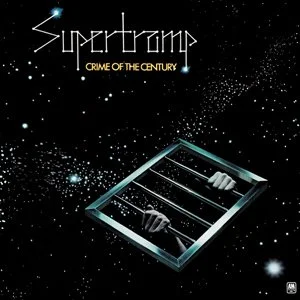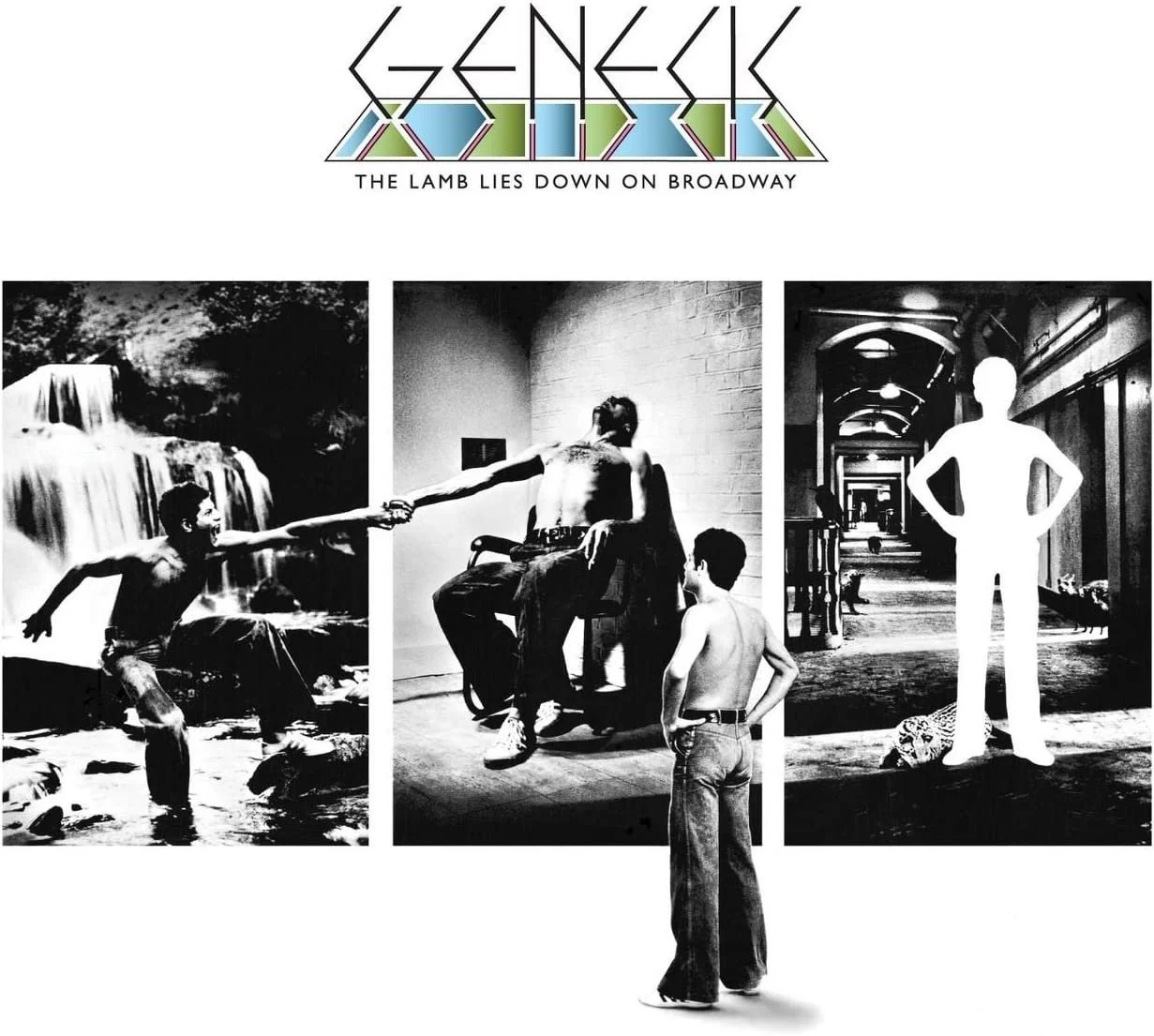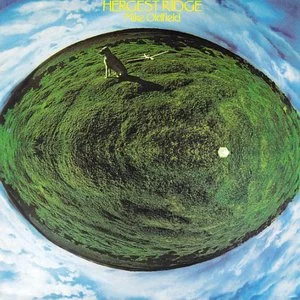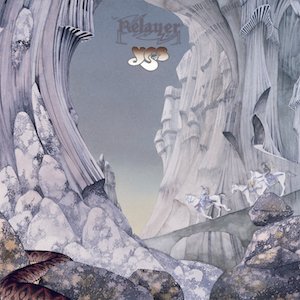Easily my favourite King Crimson LP, this album still rates in many magazine polls as amongst the best heavy rock LPs of all time. It was such a pity that this proved to be the swansong of the Wetton, Bruford, and Fripp incarnation of the band, and indeed the '70's incarnation, as Fripp called it a day soon after.
The title track absolutely blasts out of a decent set of speakers. Thunderous riffs intermingle with incredibly paced drumming, this is as hard as KC got in this period, and it certainly still holds its own now.
I really enjoy both Fallen Angel, especially Wetton's vocals, and One More Red Nightmare again moves at a cracking pace, with a great sax solo put in to boot.
The disappointment is Providence, a pointless piece of noodling, especially the Cross violin parts, it really feels out of place in all around it.
This is a shame, because the actual KC swansong, Starless, is one of the finest prog rock tracks ever written, and still my personal favourite mellotron moment at the end of the track, when the instrument blasts out to the accompaniment of woodwind and a huge bassline from Wetton. His vocals are extremely delicate, and Fripp, who knew he was disbanding the outfit, puts in a thoughtful guitar piece, which extends for many minutes without ever losing the listener's attention. This, of course, is simply the build-up to one of the most explosive ends to a track ever written.
This is one of the most essential purchases for any prog collection, and worth buying for Red & Starless alone.
This the album by the band who, probably more than any other, defined the sound and feel of pop-prog. Following two relatively lacklustre albums, this release in 1974 was a monster smash, and became a template for the albums and singles that followed propelling the band into super stardom.
Having read recent interviews with Roger Hodgson, quoting himself on tour as the "Voice of Supertramp", extremely angry that the band continued to play his smash songs following his bitter departure, and of the opinion that the "public" only want to hear the hits he wrote, I felt it was time to revisit one of the bands I fell in love with in the 1970's. Is he right? Was it, to all intents and purposes, a "one man band", with the rest chipping in? I do not believe so.
There are on this, as with all other albums they did together, Hodgson & Davies songs. Although jointly credited on the albums (a move which Hodgson states he bitterly regrets to this day), the contrast between the two styles of writing and singing is stark, the glue holding them together being one of the finest "backing" bands the world of music has produced.
There is not one weak moment on this album. The tracks hold every emotion known to man; joy, sadness, depression, madness, happiness, it has it all. And whilst the wider public would probably recognise certainly Dreamer as the epitome of the album, and, to a lesser extent, School, Hide In Your Shell, and If Everyone Was Listening as representing the definitive sound of Supertramp, i.e. Hodgson tracks, this, to my mind and ears, is exceptionally unfair to Rick Davies, who utterly excels here.
The title track contains one of the finest finale build up's known to prog, and, yes, it is pure prog. Never, I think, has a simple plinky plonk piano sounded so grand and emotional, and the sax played by Helliwell is simply sublime. An utter classic, rightly lauded.
Bloody Well Right is a joy, a massive mickey take of simple, basic, human interactions and relationships. If it was a "throwaway" or "filler" track, then it is up there with the best.
Rudy is a sublime study of a deficient human being, one yearning, yet utterly unable or incapable, of reaching his aspirations, and the upbeat music rather belies the emotion behind the lyrics.
However, the highlight of the album, and, in my honest opinion, of the entire band catalogue, is Asylum. Here, Davies completely blows away the myth that has grown up that Hodgson, and Hodgson alone, could do emotion and scale the human heights. The story of a man descending into utter madness and psychotic behaviour is heart rending, and, throughout, Davies manages that rare trick - you believe that it is he who is the subject of the song singing. The finale is compelling and so emotional that it leaves me completely exhausted every time I hear it.
So, does that make the other songs bad? Not a bit of it. I love all of Hodgson's tracks. Dreamer is pure pop prog heaven, wonderfully catchy. School is great fun, and takes you back to your own youthful days, whilst Hide In Your Shell proved that Hodgson could also do "serious" as well as whimsy. The grandiose performance on if Everyone Was Listening is exceptional.
This is a wonderful, historical, album, one of the few that deserves its place in the pantheon of essential. A work of art that not only should all prog fans own, but all lovers of well performed and emotional rock music. It is also, I venture to suggest, one of those albums that blows away the myth that a marriage of commercial tendencies and prog music must be bad. It isn't - it is the exact opposite.
Virtually a work of perfection.
Okay, it's probably heresy, but this classic is not to these ears their finest moment, although it contains some of the best music (let alone prog) ever written. Why? Well, I still, after owning the LP for some 31 years, cannot figure out just what on earth it is all about. I will also probably upset a few visitors to the site by stating unequivocally that it is too long. I seem to recall some years ago Rutherford saying that it would have made a perfect two side LP, but they got carried away - I agree.
If I were just reviewing the first two sides, this would be a no brainer masterpiece work. The Lamb... itself is a fantastic opener, In The Cage a genuine classic with such strong keyboards, backings, and vocals, the ultimate keyboard solo to weep to in Hairless Heart, a fine example of catchy and essential pop/prog in Carpet Crawlers, and Gabriel at his most emotional and heart rending in Chamber of 32 Doors, up there with my all-time Genesis favourites. The rest of the first two sides blend perfectly and there is never a dull moment, with the band itself proving themselves to be consummate professionals and musicians backing Gabriel's story about Rael (whatever it means).
For me, the last two sides are overlong. Lilywhite Lilith, and It are amongst the best works ever recorded by the band, and I especially enjoyed the remix of It on the Archives Boxset. The Light....would, to me, have been a perfect bookend to The Lamb...in much the same way as Aisle of Plenty was to Dancing.....on Selling England.... Here, it just seems somewhat out of place (pardon the pun). A lot of it is disjointed - excellent playing, but not quite right. Colony of Slippermen is a good example of this as parts of it rock with a classic keyboard solo, but others just don't seem to fit into place and noodle for the sake of it.
Don't get me wrong - this is a masterpiece, but it is by no way the finest of the Gabriel era LPs and it is easy to see in hindsight why it was his last. There were interesting times ahead.
That difficult second album. A cliché, well worn, but, as with most clichés, containing an element of truth. When, however, your debut album sold by the millions of truckloads, you are hailed as THE future of rock music, indeed, its very saviour, and you have gone from being utterly unknown except to your family and a hippy businessman with a beard, then any follow up was always going to be slightly difficult.
It is, to me at any rate, somewhat unfortunate that Oldfield's entire career will be judged by the benchmark of Tubular Bells, because I feel that he has done much better, and this album is a very good example of that. Yes, TB is a classic, deservedly in the upper echelons of rock's genius releases, but I cannot help feeling that I am not alone in stating that it has not aged particularly well. I actually prefer the two sequel TB works, and I also think, in hindsight, that Hergest Ridge is a better album. Certainly, side two is the equal of side one on this album, a charge that very few, I feel, could level at Tubular Bells.
As might be expected, there are deep similarities between the two works, released as they were, within a year of each other. There are parts when you struggle to differentiate between the two. Listen carefully, and the bells also make a few, subtle, appearances. There are, however, far stronger differences that set this album apart.
When Oldfield had become as big as God in terms of album sales, he suffered greatly, his quiet and almost reclusive personality turning away from the trappings of fame. He bought a big pad in the middle of nowhere and composed this album there. Certainly, we hear in Hergest Ridge the first elements of the pastoral, folk like music which would later become a hallmark, with strong Celtic leanings. The use of oboes, and other orchestra instruments, also adds a far richer texture to this album than Tubular Bells. In addition, the choral effects are wonderful - no annoying nasal passages here, just a rich sound of harmony with deliberately understated backing. Think of classical music set in the modern age, and you are getting somewhere near the mark. It is also the case that this is, to these ears, where Oldfield's trademark electric guitar beauty first came to the fore and led proceedings where it appeared.
The musicianship is never anything less than superb (again, unlike TB, where all sorts of glitches on the original pressing were apparent), and it is an album I find perfect listening for a breezy autumnal evening outside, as it is in my part of rural Wales. Spellbinding, evocative in its rural charm, and relentlessly engaging.
It is an album that every Oldfield fan should own, and also recommended highly for those who like their prog intelligent, pastoral, fused with classical sensibilities, and just, well, damn good.
Bye Bye Wakeman, and hello Moraz, recruited after the band experimented with the idea of hiring Vangelis, who Anderson would later successfully work with for several years.
This is Yes, Jim, but not as we know it. The feel and velocity of the music is a million miles away from its overlong predecessor, and this is not a bad thing by any means. Rumour has it that Anderson wanted to produce another very lengthy concept LP to poke two fingers up at all the critics but was withheld from doing so by wiser band members.
The main attraction is, of course, Gates of Delerium, and it is utterly brilliant. A quiet introduction belies the cacophony that follows, almost as if the band were turbocharged on speed. It is, though, incredible, and as much as I love Wakeman, I wish Moraz had done a bit more work with the band, because his swirling and pulsating keyboards contribute a huge amount to the instrumental section at the heart of the piece. When the war is over, the track descends into quite the loveliest guitar solo from Howe (this man is amazing) and Anderson's deservedly famous Soon sequence. You experience all the horrors of war in the main section and then absolutely feel the relief at the coming of the light at the end.
I noted the equally high quality of the second side of Close to the Edge. I do not, however, think that the flipside of Relayer anywhere near matches the main event.
Sound Chaser is far too jazzy for my tastes and is certainly not a typical Yes track. I do, however, adore the relaxed and sonically lovely To Be Over, which hints very much at some of the direction to follow in the next album.
A very good LP which helped restore the reputation of the band after the critical mashing they had with the predecessor LP.




